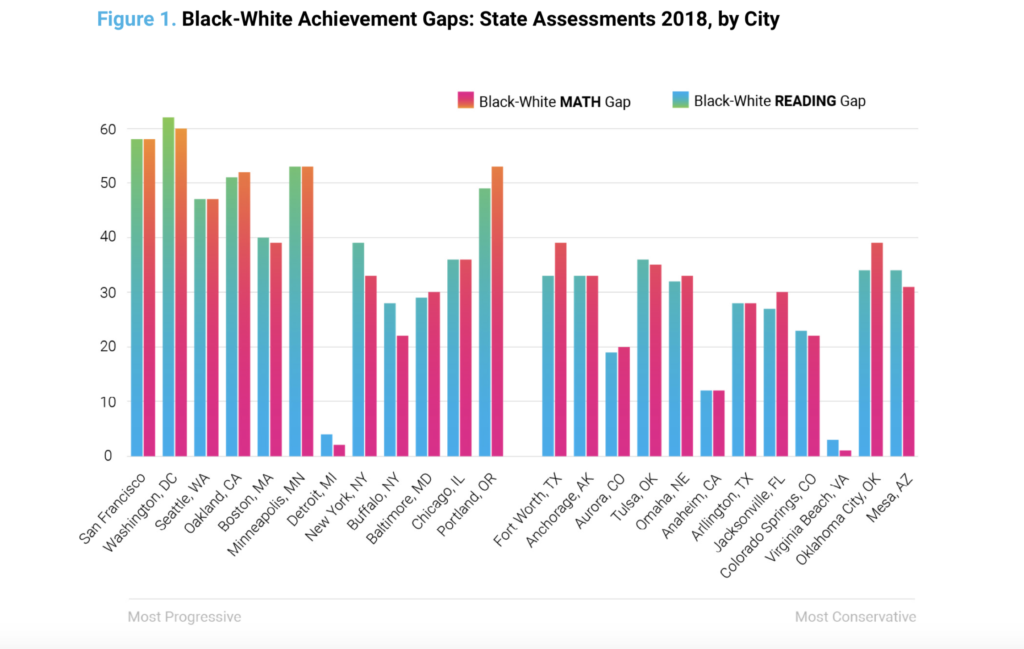
Jan 23, 2020 12:00:00 AM
Two years ago, when I ran for mayor of Minneapolis I was somewhat naïve, bright-eyed and bushy-tailed about the possibility of mobilizing the White, progressive Democratic majority and people of color in the city who were fed up with racial inequality and injustice.
In the years leading up to my run, progressives talked a good game about their desire for equity, diversity and inclusion. I watched as they marched in the streets with us during Black Lives Matter protests. They put #BlackLivesMatter signs up in their windows and on their lawns. Some of them helped to shut down streets and freeways; while others wrote op-eds and made passionately-written Facebook posts about the need to challenge injustice and end white supremacy. Their enthusiasm and exuberance in standing for justice seemed authentic, for a while.
However, all of that excitement and passionate commitment was put to the test when I decided to run for office on a racial justice platform, focused on ending racial disparities, closing the opportunity gaps in public education, and seizing power on behalf of communities of color that are too often marginalized and relegated to second class citizenship.
The lukewarm support that I received from some of the same progressives who had marched with me and shut shit down was like a splash of Minnesota ice cold water in my face, reminding me that things were not quite what they seemed. During my experience, [pullquote]I truly began to pay attention to the hypocrisy between the nice sounding words and actions of many progressives and their failure to fight for systemic changes[/pullquote] to laws and policies and indifference to the plight of poor people of color.
When I put two and two together, it all made sense—people who are living comfortable lives and for whom the system was designed for their benefit will rarely, if ever, make any significant sacrifices that threaten their discomfort, sense of entitlement or political power.
Arguably, nowhere is the hypocrisy of progressives in maintaining the status quo of the systematic oppression of Black and Brown bodies more evident than in the public education system.
In places like Minneapolis, that are known for being progressive and prosperous, one might expect a more equitable distribution of wealth, power, and opportunity for people of color, and access to high quality schools for all children. And yet, a recent report by brightbeam, entitled: The Secret Shame: How America’s Most Progressive Cities Betray Their Commitment to Educational Opportunity for All, shows that the exact opposite is true.
Cities that are identified as being progressive have significantly higher achievement gaps in reading, math, and high school graduation rates for Black and Brown children in comparison to their White counterparts. In contrast, cities known for being conservative have much lower gaps in learning outcomes between Black and Brown students and their White peers.
It seems unfathomable that progressives in Minneapolis would tolerate a 53 point gap between Black children’s proficiency rates in both reading and math in comparison to White children’s proficiency rates. Brown children in Minneapolis face similar gaps in proficiency, when compared to their White counterparts.

How can this conundrum be explained without deconstructing some of the possible factors that contribute to progressives consciously or subconsciously participating in the oppression and stifling of opportunity and academic progress for Black and Brown children? I believe that one of the factors that most heavily contributes to this phenomenon is the fact that all too often, folks assume that having good intentions and being a good person insulates them from taking real responsibility in addressing systemic issues and working to disrupt the status quo.
Simply identifying as progressive and voting a certain way is no substitute for actually doing the hard work of challenging and undoing the oppression and inequities pervasive throughout the public school system. Some conservative cities have found tangible ways to reduce achievement gaps, which means that change is possible with actual strategies (not just rhetoric) and the political will to move the needle.
The brightbeam report challenges us all to reexamine our beliefs around how core values that are espoused, must be actualized into policy changes that open the door to significant change. We can no longer afford to give anyone a pass in fighting for education justice.
Nekima Levy Armstrong is a renowned civil rights attorney and executive director of Wayfinder Foundation. She is a former law professor and former President of Minneapolis NAACP. Nekima is the author of several articles and essays focused on racial justice, poverty, incarceration and the War on Drugs. Her work has been featured in The Associated Press, The Crisis Magazine, Huffington Post and the Star Tribune, to name a few. She has appeared on national news outlets such as CNN, PBS, Al Jazeera America, News One, Democracy Now and HuffPost Live.
The story you tell yourself about your own math ability tends to become true. This isn’t some Oprah aphorism about attracting what you want from the universe. Well, I guess it kind of is, but...
If you have a child with disabilities, you’re not alone: According to the latest data, over 7 million American schoolchildren — 14% of all students ages 3-21 — are classified as eligible for special...
The fight for educational equity has never been just about schools. The real North Star for this work is providing opportunities for each child to thrive into adulthood. This means that our advocacy...
Your donations support the voices who challenge decision makers to provide the learning opportunities all children need to thrive.
Ed Post is the flagship website platform of brightbeam, a 501(c3) network of education activists and influencers demanding a better education and a brighter future for every child.
© 2020–2024 brightbeam. All rights reserved.
Leave a Comment